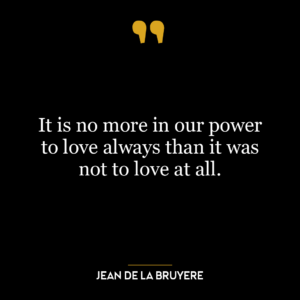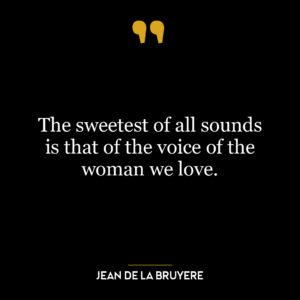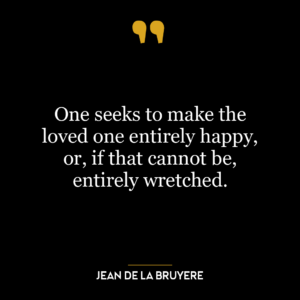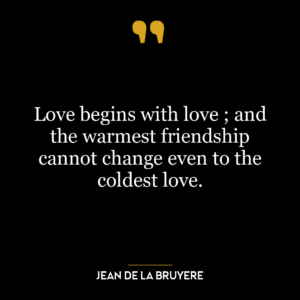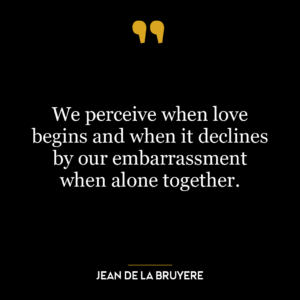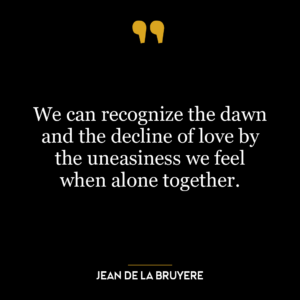“If you wish to be loved, love” is a profound statement that encapsulates the essence of reciprocity in human relationships. It implies that love, like respect or kindness, is not something that can be demanded or expected without giving it first. Instead, it’s a mutual exchange, a give-and-take process. To experience love from others, one must first be willing to express love themselves.
This quote can be interpreted on multiple levels. On a personal level, it encourages individuals to be proactive in expressing their love and affection towards others. It suggests that one’s capacity to give love directly influences the amount of love they receive in return.
On a broader societal level, this quote can be seen as a call for empathy and understanding. By encouraging us to love, it urges us to step into another’s shoes, to understand their perspectives, and to treat them with kindness and respect. In a world often divided by differences, this call for love and understanding is more relevant than ever.
In terms of personal development, this quote can be a guiding principle. It encourages individuals to cultivate a loving and empathetic attitude, not just towards others, but also towards themselves. By learning to love oneself – with all one’s strengths and weaknesses – one can develop a healthy self-esteem and a positive outlook on life. This self-love then radiates outwards, influencing the way we interact with others.
In today’s world, where people are increasingly connected yet emotionally distant, this quote serves as a reminder of the importance of genuine connections. It suggests that to build meaningful relationships, one must be willing to give love – to express kindness, understanding, and respect – without expecting anything in return. In a society often focused on self-interest, this call for selfless love can be a powerful catalyst for change.
In conclusion, “If you wish to be loved, love” is a timeless piece of wisdom that encourages us to be proactive in expressing love, to cultivate empathy, and to build genuine connections with others. It serves as a reminder that love is a two-way street, and that the love we receive is often a reflection of the love we give.







